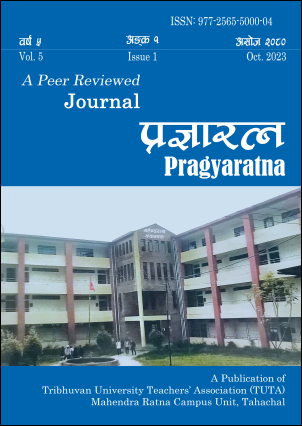Use of Mobile/Smart Phones and Students' Mathematics Learning: A Case of Basic Schools in Nepal
DOI:
https://doi.org/10.3126/pragyaratna.v5i1.59277Keywords:
Smart phones, information communication, performance, application, mathematicsAbstract
This study is mainly focused on the students' mobile using habit and its impact on teaching and learning mathematics. The study method was survey with 119 students of public and institutional schools in the Chandragiri Municipality of Kathmandu. Questionnaire is use for identifying the access and use of mobile for learning and achievement test for measuring the students' achievement as tools for the study. The study found that 89.9% students had access of smartphones at their home including personal as well as their own. The utilization of mobile smart phone is the genuine concern for the proper utilization for learning. The results indicated that, the use of mobile in planned learning for a specified time enhanced the mathematics performance of students. Adversely, those students who engaged on mobile/smart phones higher in hours and not using mobile for learning purpose decreased their achievement in mathematics. Gender difference observed in using mobile that boys used mobile more hours than the girls. Further, entertainment type of application/programme such as music videos, song were the favorite program for girls whereas games related programme was the favorite programme for boys in the use of mobile/smart phones. Two hours/day was found the standard time to use mobile/smart phones for better performance in mathematics.




